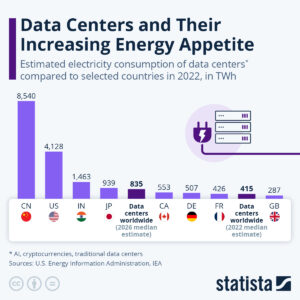As individuals and organizations increasingly prioritize sustainability factors in their decision-making, “greenwashing” has become a significant concern. The definition of the term ‘greenwashing’ is a work in progress. In the context of sustainability, the general view is that greenwashing occurs when a company makes misleading or false claims about its sustainability performance to appear more sustainable than it is.
Here are a few recent cases of “greenwashing”:
- Canada: January 2022. Canada’s Competition Bureau ordered Keurig Canada to pay a fine of $3 million over false or misleading environmental claims made to consumers about the recyclability of its single-use Keurig® K-Cup® pods.
- U.K. October 2022. The U.K.’s Advertising Standards Authority (ASA) ordered HSBC to remove bus stop ads in London and Bristol about the bank’s sustainability commitments.
- Netherlands: September 2022. The Netherlands Authority for Consumers and Markets (ACM) asked Sporting goods retail chain Decathlon and clothing retail chain H&M to adjust their sustainability claims for some of their products. They each made donations of 400,000 euros and 500,000 euros to different sustainable causes to compensate for their use of unclear and insufficiently substantiated sustainability claims.
- USA: November 2022. The Securities and Exchange Commission charged Goldman Sachs Asset Management, L.P. (GSAM) for policies and procedures failures involving two mutual funds and one separately managed account strategy marketed as Environmental, Social, and Governance (ESG) investments. To settle the charges, GSAM agreed to pay a $4 million penalty.
Consumers need more reliable information about the sustainability of products. A European Union survey in 2020 suggested that 42% of businesses made exaggerated, false or deceptive claims about the sustainability of their products, claims that could qualify as unfair commercial practices under EU rules.
What is being done about “Greenwashing.”
On May 25, 2022, the US SEC(Securities and Exchange Commission) proposed new rules to curb greenwashing. One rule indicated that funds with ESG (environmental, social or governance) terminology in their names must “invest at least 80% of their assets in accordance with the investment focus that the fund’s name suggests. In November 2022, three European Supervisory Authorities (ESAs) launched a joint review to assess the scope and scale of greenwashing in the financial industry. A report is expected in May 2023.
In March 2023, The Canadian financial regulator (Office of the Superintendent of Financial Institutions) published guidelines on climate risk management and financial disclosure for federally regulated financial institutions(FRFIs). The guideline requires FRFIs to make reliable, verifiable climate-related financial disclosures annually.
In March or April 2023, the European Commission is expected to table the Green Claims Directive. This law aims to crack down on greenwashing by regulating how companies provide evidence for and market their green claims.
Implications on Sustainability Strategy.
Evidently, “greenwashing” poses a significant non-financial strategic risk for the company. The reputation of the business is at stake. Boards and Sustainability Steering Committees must stay ahead of these evolving regulatory and policy developments. Proactively monitoring these developments can help the business prepare and mitigate emerging risks.
How do you do that? It will help if you have a well-defined sustainability strategy in place. If there is one impactful thing you can do, it is this:
Please ensure enough resources are allocated to manage this sustainability risk across the organization.




